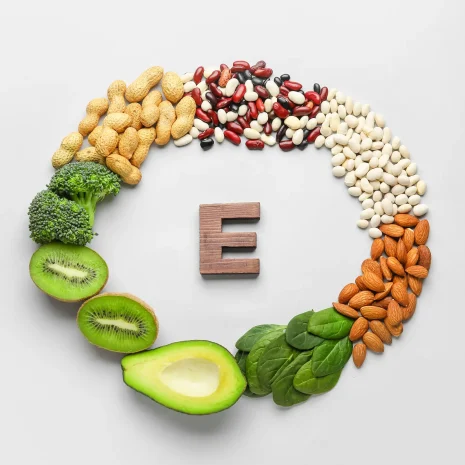The Vital Role of Vitamin C in Combating Spring Fatigue
As spring approaches, many individuals anticipate new beginnings and an increase in energy levels. However, some may experience seasonal fatigue, often referred to as “spring fatigue”. This article delves into the symptoms associated with spring fatigue and offers strategies to mitigate its effects, emphasising the vital role of Vitamin C in this process.
What is spring fatigue?
Spring fatigue refers to the tiredness often experienced during seasonal transitions. This phenomenon may manifest as a blend of physical and psychological symptoms, with its effects typically being felt most acutely in March when spring officially begins.
Although it’s most often referred to as spring fatigue, similar symptoms can be experienced around September and October as the northern hemisphere transitions into autumn. At this time of year, you might hear it described as autumn or ‘fall fatigue’, though it’s thought to be the same mechanisms at play.
What causes spring fatigue?
The discomfort associated with spring fatigue can largely be attributed to the body’s adjustment to changing seasons. Factors contributing to this fatigue include:
- Seasonal Changes : The transition from the cold of winter to the warmth of spring can challenge the body’s biological clock, leading to fatigue as it recalibrates.
- Allergies : Spring brings increased pollen levels, which may trigger allergic responses such as nasal congestion and sneezing, compounding feelings of fatigue.
- Sleep Irregularities : Altered daylight hours can disrupt sleep patterns, creating a cycle of restlessness and diminished energy.
- Dietary Deficiencies and Stress : Inadequate vitamin intake and elevated stress levels further exacerbate fatigue.
What are the symptoms of spring fatigue?
Spring fatigue can lead to various physical and emotional changes that may overlap with those of seasonal affective disorder. Common symptoms include:
- Lethargy: Pronounced sluggishness, making it difficult to arise in the morning and leading to low energy throughout the day.
- Sleep Disturbances: Issues such as trouble falling asleep or excessive sleeping.
- Mood Changes: Feelings of unhappiness, irritability, anxiety and restlessness.
- Difficulty Concentrating: Challenges in maintaining focus, which can affect occupational and academic performance.
- Appetite Fluctuations: Variations, including increased or decreased appetite.
- Physical Discomfort: Aches and pains, particularly in the neck, head, shoulders and back.
If you experience these symptoms, it is recommended to consult with a healthcare professional for guidance.
Does vitamin C help with fatigue?
Vitamin C is a vital nutrient known for its numerous health benefits, particularly in supporting energy levels and immune function, which can be especially helpful during the spring months. Key benefits include:
- Energy Production: Vitamin C contributes to the synthesis of carnitine, a molecule that helps transport fatty acids into cells for energy.
- Immune Support: Adequate Vitamin C levels bolster the immune system, helping the body defend against seasonal allergies and infections.
- Mood Enhancement : As an antioxidant, Vitamin C may help reduce oxidative stress, which can affect mood and contribute to feelings of fatigue.
Dietary Sources of Vitamin C
Incorporate foods rich in Vitamin C, such as citrus fruits (oranges, lemons), strawberries, kiwis, bell peppers and leafy greens. A daily intake of 75-90 mg is recommended for adults to maintain optimal health. Individuals shouldn’t take more than 1,000 mg per day of vitamin C supplements, as this can lead to side effects such as diarrhoea and stomach pain.
How to deal with spring fatigue?
Beyond getting your five a day or turning to vitamin C supplementation, here are some other ways you can manage spring fatigue symptoms.
- Regular Physical Activity: Engaging in exercise can enhance the release of endorphins, contributing to elevated energy levels.
- Maximise Sunlight Exposure: Insufficient sunlight can worsen symptoms. Aim to spend approximately 30 minutes outdoors on sunny days to boost mood and energy.
- Nutritional Improvement: A diet rich in fruits, vegetables and lean proteins can enhance overall nutrient intake, including Vitamin C, which is crucial for immune support and energy metabolism.
- Effective Sleep Hygiene: Implement calming pre-bedtime rituals, ensure proper ventilation in the sleeping environment and adhere to a consistent sleep schedule.
- Stress Reduction Techniques: Incorporating practices such as meditation or yoga can help manage stress, which may otherwise intensify fatigue symptoms.
Multivitamins can help you to stay fit and healthy by ensuring you get the right levels of the various essential vitamins and minerals your body needs. But they aren’t a substitute for a healthy diet, and the focus of any healthcare or supplementation plan should be to build and maintain a balanced, nutritious diet.
While multivitamins can offer valuable support for overall health, it is essential to recognize that a balanced diet should remain the cornerstone of nutritional well-being. Multivitamins are intended to be a complementary measure and should not be considered a substitute for a diverse and nutritious food intake.
Note: It is strongly advised that individuals consult a healthcare professional prior to initiating any supplement, particularly if they have existing health conditions, are taking prescribed medications, or are pregnant.








